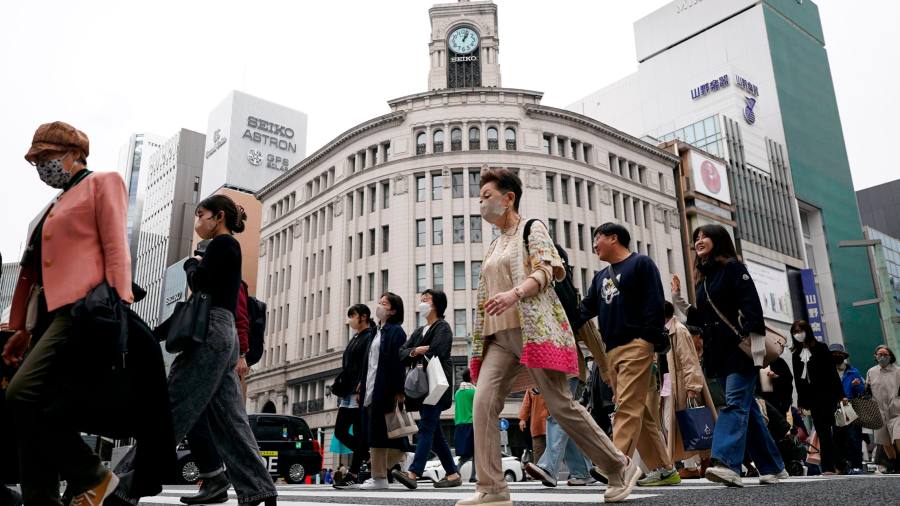Japan has emerged from a technical recession on the back of a post-Covid recovery in household spending and tourism, sending stocks to a new 33-year high in Asia’s most advanced economy.
Economists warned, however, that the strength of Japan’s recovery was modest with exports and manufacturing weak, underscoring the risks ahead if the global economy slows further.
Gross domestic product grew at an annualised rate of 1.6 per cent in the January to March quarter, compared with economists’ expectations of a 0.7 per cent gain. Japan had been in a technical recession following a 1 per cent drop and 0.1 per cent fall in the third and fourth quarters of 2022, respectively.
The latest data translated into a quarterly growth rate of 0.4 per cent, according to preliminary figures released by the cabinet office on Wednesday.
“While we need to pay attention to downside risks to the global economy, we expect a modest recovery in the economy to continue,” economy minister Shigeyuki Goto said, citing an improvement in consumer confidence, robust business spending and a rise in wages among big companies.
Following the GDP release, the broad Topix stock index rose as much as 0.4 per cent, while the Nikkei index gained 0.8 per cent, both edging closer to their highest level since Japan’s market bubble burst in the final days of 1989.
The market gains on Wednesday continued a rally in Tokyo stocks that has propelled the Topix index more than 14 per cent higher since the start of the year. The rise has been driven by foreign investors’ interest in the prospects of improvement in corporate governance and managements feeling obliged to work harder to raise their share prices.
The rally has also been sustained by optimism that Japan may have passed a critical inflection point that locks in the expectation of rising wages and higher consumer spending.
Household spending, which accounts for more than half of Japan’s GDP, rose 0.6 per cent from the previous quarter while business investment also rose a bigger than expected 0.9 per cent.
The recovery in consumption was driven by the lifting of pandemic-related restrictions and the return of overseas tourists as the Japanese government recently downgraded Covid-19 to the same status as the seasonal flu.
But exports of goods and services fell 4.2 per cent, marking the first fall in six quarters due to a slump in the global semiconductor market.
“Due to the decline in exports, these figures aren’t enough to say economic conditions are vibrant,” said Yoshiki Shinke, chief economist at Dai-ichi Life Research Institute.
He said the figures were likely to lend some support to the Bank of Japan as its new governor Kazuo Ueda faces the challenge of unwinding massive easing measures if consumer prices continue to rise at their fastest pace in four decades.
Read the full article here




